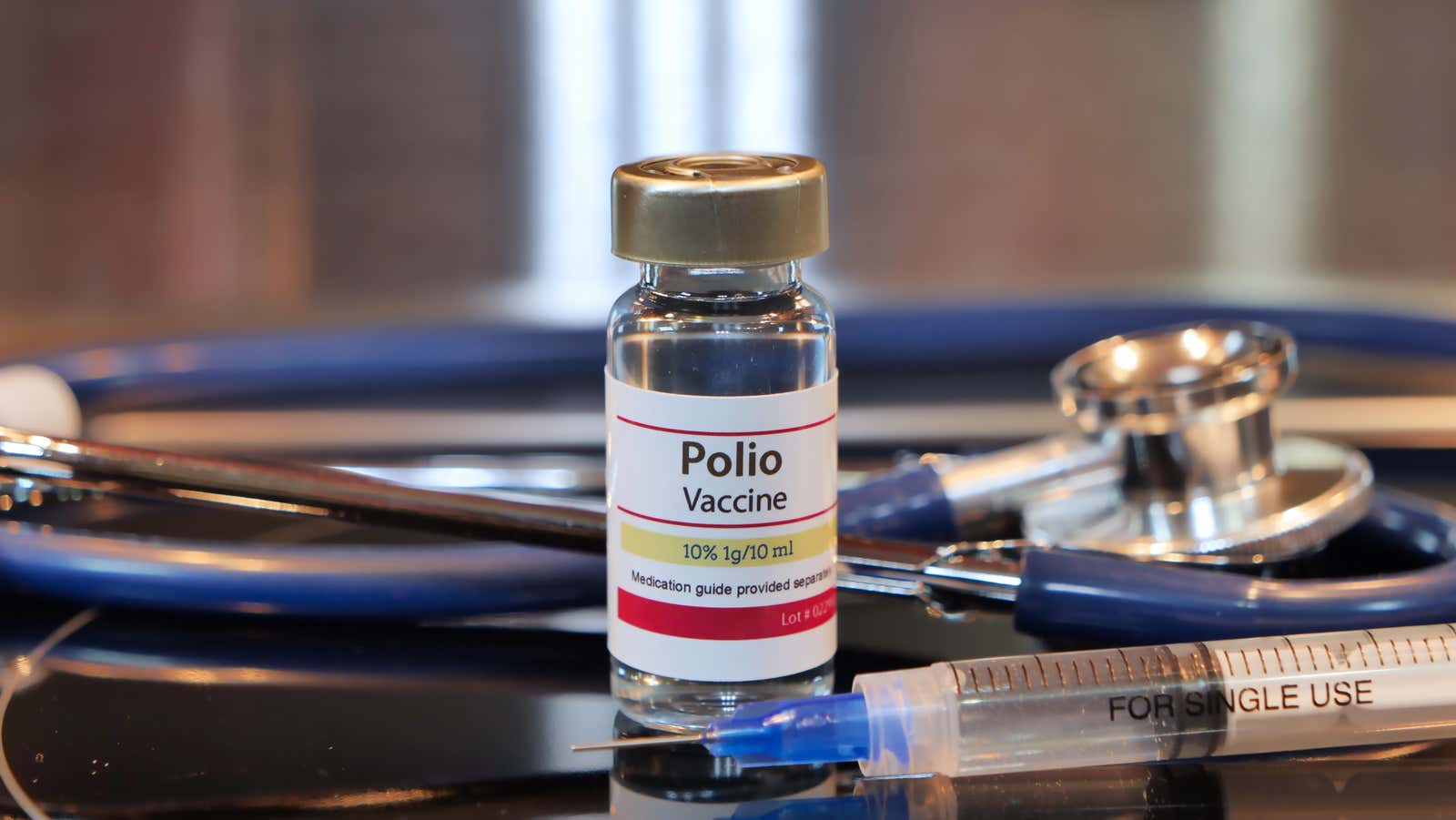How Do I Know If I Have Been Vaccinated Against Polio?

Polio has been on the news lately and many people wonder if they were vaccinated against polio as a child. Luckily, if you grew up in the US, chances are good that this was the case.
Who is likely to have been vaccinated against polio?
Since the polio vaccine was first developed, it has been of great importance, to put it mildly. In 1955, trials of Salk’s injectable polio vaccine were announced with great fanfare, and mass vaccination campaigns soon followed. A few years later, the oral Sabin vaccine was also approved and widely used.
For the next several decades, polio vaccination was common among children in the US and in many other parts of the world. Since 1980, polio vaccination coverage among one-year-olds in the United States has been 95% or higher .
CDC says :
It is assumed that the majority of adults (i.e., persons over 18 years of age) living in the United States are immune to poliovirus as a result of previous routine childhood immunizations and are only at a low risk of contracting poliovirus in the United States.
What happened to polio?
The last natural case of polio in the US was in 1979. Vaccination went so well that in 1985 the World Health Organization set a goal of eradicating polio from the Americas by 1990. We didn’t quite meet the deadline, but both continents were declared polio free in 1994. The campaign to eradicate polio is still going on in other parts of the world; it is one of the very few diseases that we really have a chance to get rid of.
Children are still being vaccinated against polio. On the contrary, after smallpox (the only human disease we have eradicated) was eradicated from the world, smallpox vaccination was no longer carried out according to the standard schedule. They were no longer needed. But this is not the case for polio because it still exists in other parts of the world. If someone with polio arrives in the US after catching it elsewhere, we need at least 80-85% of the population to be immune so the virus can’t spread. This is why polio vaccination is still part of the standard schedule.
Today, the injectable polio vaccine is given as one of the standard childhood vaccines in a four-dose course starting at 2 months of age and ending around 4 years of age. (The oral vaccine is no longer used in the US, but if you remember getting the vaccine on a sugar cube, that probably was. We have more on the difference between the two vaccines here .)
How do I know if I have been vaccinated against polio?
Unfortunately, there is no centralized vaccine registry in the US, so this is a matter of your personal medical records. If you’ve updated your files well when moving from one doctor to another, there might be something about when and if you got your polio shot. But for most of us, this documentation is hidden somewhere else.
You can try asking your parents. You can ask for medical records from the doctor or hospital where your family took you if you can remember or guess where it was. You can check school records, as schools often require proof of immunization against a list of diseases. Don’t expect your elementary school to keep your records all these years, but you might have a folder somewhere with some health forms tucked away with your old report cards. If your parents had a children’s book, this would be another place to look.
Some states have a vaccine registry. The CDC suggests contacting your local or state health department to see if there is a way to review your records.
What if I don’t know if my polio vaccine is up to date?
If you don’t know if you’ve been vaccinated, or if you’ve had several shots but not the full course, you can still get a second shot. (By the way: it’s usually safe to get an extra dose of a vaccine. If you need a vaccine and aren’t sure if you’ve had it, your doctor will usually tell you to just go and get another one.)
The CDC recommends getting a three-dose course of the polio vaccine if you don’t know if you’ve been vaccinated. This is the same recommendation as for unvaccinated people.
If you know you have received some but not all doses of the vaccine, you may complete the course; The CDC website has more information about how many doses you need and when to give them.
And finally, if you have been vaccinated but are now at “higher risk” of infection and want to be absolutely sure that you have the best possible protection, you can get one booster dose that is considered sufficient for lifelong protection. You are at increased risk in situations that include traveling to a country with endemic polio, exposure to the polio virus as part of your work as a scientist or health worker, or if you have been or are likely to be exposed to polio. with people who may have polio.